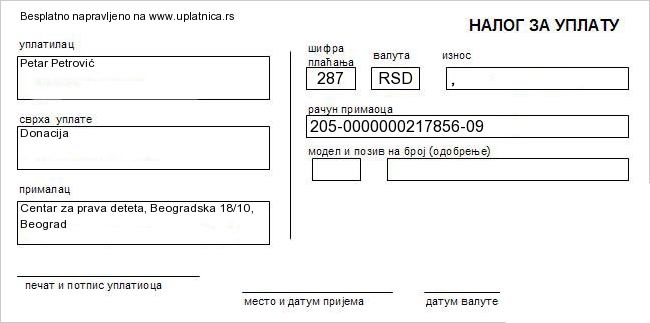
The Child Rights Centre held the third dialogue on the rights of the child entitled “Child-friendly Serbia – Infrastructure and Challenges in Implementation” as part of the project Strengthening the capacities of civil society organisations to contribute to the fulfilment of Serbia’s human dimension commitments in the field of the rights of the child, financially supported by the OSCE Mission to Serbia. The dialogue gathered representatives of competent institutions, civil sector and international organisations. It was an opportunity to summarise what had been done in the Republic of Serbia in order to ensure continuous support and improvement of the existing conditions, and an opportunity to review the functioning of the general measures for the implementation of the Convention.
Our country ratified the Convention on the Rights of the Child 32 years ago, thereby undertaking, among other things, to take all appropriate legislative, administrative and other measures to realise the rights recognised in this international agreement. Despite the efforts to improve the position and rights of the child through legal documents, it was noticed that in practice there was no comprehensive approach to the protection of child rights, intersectoral cooperation or thorough understanding of the responsibility for the protection of child rights in certain social areas, which is a prerequisite for the realisation of all guaranteed rights fully in accordance with the Convention.

Building on the first and the second dialogue, which covered the general framework for the realisation of child rights in Serbia, the lack of legislative and administrative measures, and challenges in realising the basic principle of child rights – protection from discrimination, the goal of the third dialogue was to mark the World Children’s Day and confirm the commitment of all actors in Serbia to the realisation of child rights, as well as to contribute to raising awareness in society, especially among children, parents and all those who work with children.

In the first panel, it was stressed, among other things, that education related to child rights in Serbia did not meet the standard defined in the Convention on the Rights of the Child, according to which the states should enable learning about child rights “for every child, at all levels of education.” It is also worrying that there is generally a lack of knowledge and misunderstanding of the concept of child rights at all levels, from children and parents, through professionals to decision makers. The participants reiterated the need for the adoption of a comprehensive Law on the Rights of the Child, and discussed the issue of establishing an independent body for the protection of child rights and the importance of developing a national strategy for child rights. They also pointed out the necessity of continuous monitoring of the realisation of child rights, cooperation with civil society organisations, continuous training and dissemination of information about child rights, as well as cooperation with international organisations in this area.

The second panel was dedicated to the presentation and description of all the necessary steps to ensure the timely and adequate protection of children from violence, abuse and neglect in all the environments in which they lived, with the aim of ensuring the conditions for the safe and proper growth and development of each child, while respecting their integrity and dignity. The panellists particularly referred to the challenges in the protection of children in the field of informal education and sexual abuse, as well as the increasingly frequent occurrence of peer violence. It was highlighted that child rights were insufficiently respected precisely in the areas of social life that concerned children most, and in which they should be provided with special protection, such as education, family-legal, social and health care systems.
Posts about dialogue:
